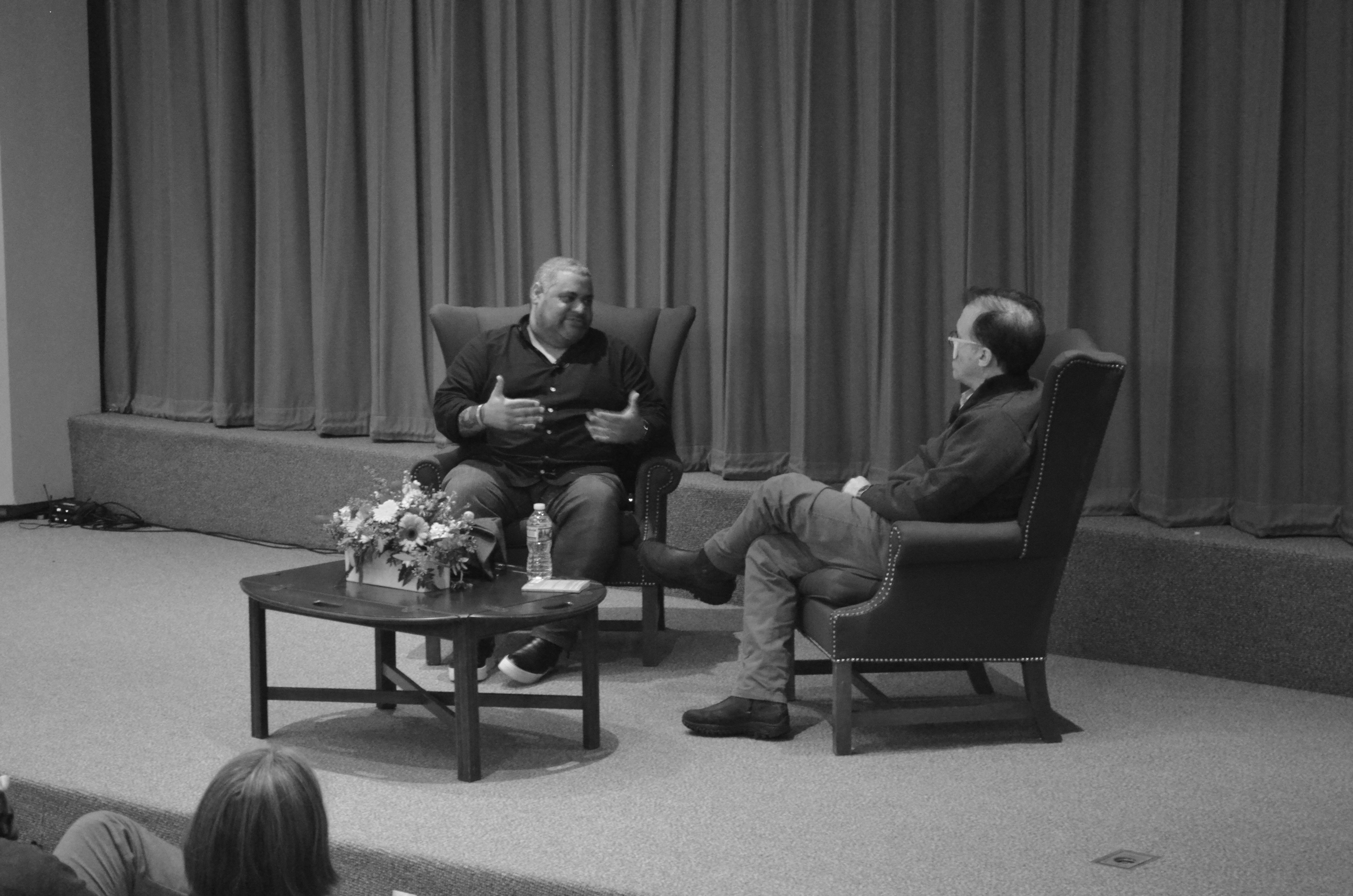

Renowned author Chris Abani delivered a speech titled “My Face and Ours: Views of Today’s America” in Stirn Auditorium on Feb. 24. Abani’s talk focused on themes from his new book of essays, “The Face: Cartography of the Void,” and was part of a lecture series taking place to honor Black History Month. Abani commented on the complex undercurrents of race and individual and collective identity in people’s interactions with their own and others’ faces.
A conversation between Abani and Latin American and Latino Culture professor Ilan Stavans, who was the publisher of Abani’s memoir, followed the lecture, and the event concluded with a question and answer session. The lecture was sponsored by the Victor Johnson Lectureship Fund, and President Biddy Martin selected Abani to be the speaker.
Abani is an award-winning author of novels, essays, poems, screenplays and plays. He has received a Guggenheim Award, the Prince Claus Award, PEN USA Freedom-to-Write Award and the PEN Hemingway Book Prize, among others.
“Graceland” is one of his most well known works. One focus of his work is the collision of cultures he experienced growing up with a Nigerian father and an English mother. He is currently an English professor at Northwestern University.
Chief communication officer Pete Mackey, who was involved with planning the event, said that Abani’s lecture tied into themes touched upon by political strategist Donna Brazile’s recent talk on race and electoral politics.
“We chose Chris because of his excellence as a writer and public speaker, because his recent book, ‘The Face: Cartography of the Void,’ explores timely topics of race and identity in a candid and compelling way and because of the range of ideas his writing as an accomplished essayist, novelist and poet has probed,” Mackey wrote in an email interview.
Abani spoke on how a person’s race impacts the way that their face is viewed. While some worry about whether their face is considered beautiful, Abani said he is more concerned with how he holds his face and how others read his face in relation to personal safety.
Abani said that no matter how faces represent individuals, they are subject to being perceived as representative of racial groups.
“It seems like you are always caught between this problem, where any attempt to affirm your individuality, affirm your own privilege, becomes a simultaneous shameful thing, where you are simultaneously disavowing other kinds of blackness — making you a race traitor, but also putting you in a position where you are always begging for something that actually belongs to you,” he said.
Throughout his talk, Abani used personal anecdotes to convey his thoughts on contemporary issues. He shared stories from his childhood growing up in a biracial family in Nigeria and his experiences of discrimination in the U.S.
“Power, it has been argued, is in having fluidity — fluidity within a larger social context, but also within your own self-narrative, such as to accommodate and simultaneously thwart narratives that are projected onto you,” Abani said.
Abani consistently returned to the concept of the face and its relationship to identity throughout the talk. He noted that individuals are taught to see humanity in things that they perceive as human, and appealed to the audience to change their reflexive associations and attitudes.
“When I look at a face I try to challenge every assumption I have about that face and what that face is trying to tell me,” he said. “I try to touch it metaphorically in certain ways as to say, ‘Who is this face and what does this face mean to me?’”